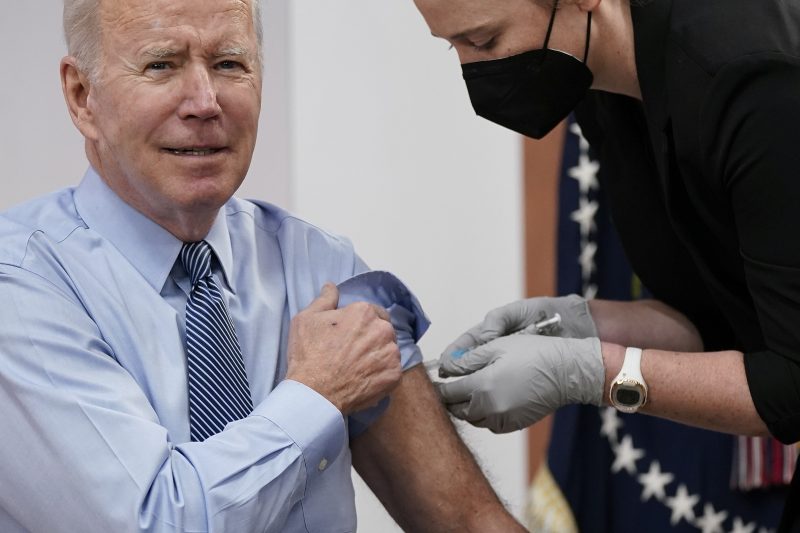
The political fight over the pandemic ends on Republican terrain
The political war over the coronavirus pandemic is over, and it’s hard not to think that the people who shrugged at it from the outset emerged victorious.
This is the nature of political debates at the moment, really. Nuanced situations that evolve over time lend themselves readily to cherry-picked reinterpretation, and there are entire communities of people online who rock-tumble rhetoric until it is smoothed to its most polished and appealing. Layer on the perceived empowerment from thinking you know more than the experts and the elites and you can explain much of the past three years.
The reality is that the country’s hastily crafted response to the pandemic in early 2020 evolved into a clearer, more useful one. The introduction of vaccines that could largely prevent serious illness undoubtedly saved hundreds of thousands of lives, even if the rollout was itself haphazard and even though the vaccines arrived just as Republican skepticism about pandemic precautions was peaking. For the past two years, the story of the pandemic has been the partisan divide in what the country ought to do about it, with Republicans disproportionately likely to die from covid-19 as a result.
It’s hard to win a political debate against someone willing to die for their beliefs, even if that death is viral. Given the decreased mortality of recent variants of the virus (even if the long-term effects of infection are still murky), Democratic leaders have been increasingly willing to accede to moving the pandemic to the rearview mirror. The new Republican majority in the House, powered by a base that views its long-standing skepticism as validated by the new, less-lethal strains, is demanding that the nation formally declare the pandemic ended. The Biden administration is prepared to do just that, ending the national emergency in May.
The practical effect of this shift will generally be subtle. The Kaiser Family Foundation delineates the immediate changes, most of which involve an end to reduced-cost treatments or expanded accessibility to health-care systems. The federal declaration affected federal systems, ones that aren’t always obvious to regular citizens.
The political effect, though, will be that Biden and House Republicans will race to take credit for the pandemic’s end. Both sides are in agreement, really; the fight now is over spin.
For Biden, this position is possible thanks in part to decreased Democratic concern about the pandemic. Democrats are more likely to have been vaccinated against the virus in part because they’ve long expressed more concern about the risk of covid-19. In recent months, polling from YouGov shows that this concern has declined. In YouGov’s most recent poll, the percentage of Democrats saying they’re “very worried” about covid-19 is statistically indistinguishable from that of Republicans.
A plurality of Democrats are simply “somewhat” worried.
Obviously this is not because there is no more virus. The Washington Post’s data show that about 500 people are dying of the virus every day. That’s a relatively low figure compared to the peak of the pandemic, but it’s also on the high end of the past year or so. Since mid-April 2022, the country has seen several hundred virus deaths each day, the seven-day average rising or falling periodically. But it’s been fairly steady, a flu-season of fatalities in an ongoing basis.
This holds at the state level. For the past nine months, the population-adjusted death toll in each state has remained fairly steady, lower than that state’s peak. On average, states are seeing 1.1 deaths for every 10,000 residents every three months.
This is better than it had been; the three-month period that ended at the end of January 2022 saw four times as many deaths on average. But it remains a tangible, identifiable toll as the government prepares to unwind its accommodations for the still-prevalent virus.
The period during which the pandemic inspired Americans to work together to limit infections and save lives is long over. Pushed by former president Donald Trump and his desire to be reelected, Republicans shifted to a position of individual responsibility (and culpability) early on. The combination of the vaccine and the mutated virus slowly made that position more tenable. Now, with Republicans eager to take credit for ending a community approach to the pandemic, Biden has decided that there’s political space for him to do so first.
